Mustafa Abdool
Applying Embedding-Based Retrieval to Airbnb Search
Jan 11, 2026Abstract:The goal of Airbnb search is to match guests with the ideal accommodation that fits their travel needs. This is a challenging problem, as popular search locations can have around a hundred thousand available homes, and guests themselves have a wide variety of preferences. Furthermore, the launch of new product features, such as \textit{flexible date search,} significantly increased the number of eligible homes per search query. As such, there is a need for a sophisticated retrieval system which can provide high-quality candidates with low latency in a way that integrates with the overall ranking stack. This paper details our journey to build an efficient and high-quality retrieval system for Airbnb search. We describe the key unique challenges we encountered when implementing an Embedding-Based Retrieval (EBR) system for a two sided marketplace like Airbnb -- such as the dynamic nature of the inventory, a lengthy user funnel with multiple stages, and a variety of product surfaces. We cover unique insights when modeling the retrieval problem, how to build robust evaluation systems, and design choices for online serving. The EBR system was launched to production and powers several use-cases such as regular search, flexible date and promotional emails for marketing campaigns. The system demonstrated statistically-significant improvements in key metrics, such as booking conversion, via A/B testing.
Learning to Rank for Maps at Airbnb
Jun 25, 2024



Abstract:As a two-sided marketplace, Airbnb brings together hosts who own listings for rent with prospective guests from around the globe. Results from a guest's search for listings are displayed primarily through two interfaces: (1) as a list of rectangular cards that contain on them the listing image, price, rating, and other details, referred to as list-results (2) as oval pins on a map showing the listing price, called map-results. Both these interfaces, since their inception, have used the same ranking algorithm that orders listings by their booking probabilities and selects the top listings for display. But some of the basic assumptions underlying ranking, built for a world where search results are presented as lists, simply break down for maps. This paper describes how we rebuilt ranking for maps by revising the mathematical foundations of how users interact with search results. Our iterative and experiment-driven approach led us through a path full of twists and turns, ending in a unified theory for the two interfaces. Our journey shows how assumptions taken for granted when designing machine learning algorithms may not apply equally across all user interfaces, and how they can be adapted. The net impact was one of the largest improvements in user experience for Airbnb which we discuss as a series of experimental validations.
Optimizing Airbnb Search Journey with Multi-task Learning
May 28, 2023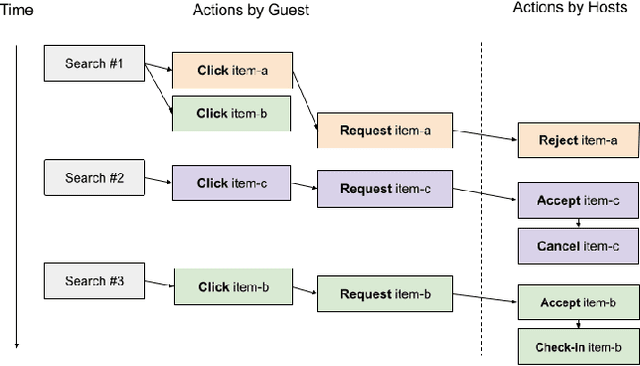

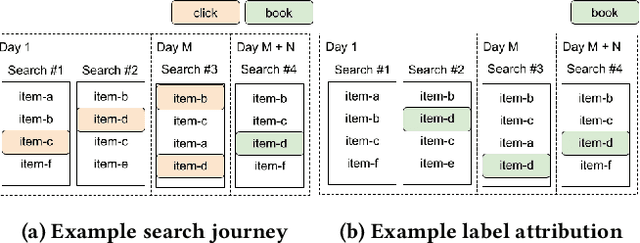

Abstract:At Airbnb, an online marketplace for stays and experiences, guests often spend weeks exploring and comparing multiple items before making a final reservation request. Each reservation request may then potentially be rejected or cancelled by the host prior to check-in. The long and exploratory nature of the search journey, as well as the need to balance both guest and host preferences, present unique challenges for Airbnb search ranking. In this paper, we present Journey Ranker, a new multi-task deep learning model architecture that addresses these challenges. Journey Ranker leverages intermediate guest actions as milestones, both positive and negative, to better progress the guest towards a successful booking. It also uses contextual information such as guest state and search query to balance guest and host preferences. Its modular and extensible design, consisting of four modules with clear separation of concerns, allows for easy application to use cases beyond the Airbnb search ranking context. We conducted offline and online testing of the Journey Ranker and successfully deployed it in production to four different Airbnb products with significant business metrics improvements.
Out-of-Distribution Generalization in Algorithmic Reasoning Through Curriculum Learning
Oct 07, 2022


Abstract:Out-of-distribution generalization (OODG) is a longstanding challenge for neural networks, and is quite apparent in tasks with well-defined variables and rules, where explicit use of the rules can solve problems independently of the particular values of the variables. Large transformer-based language models have pushed the boundaries on how well neural networks can generalize to novel inputs, but their complexity obfuscates they achieve such robustness. As a step toward understanding how transformer-based systems generalize, we explore the question of OODG in smaller scale transformers. Using a reasoning task based on the puzzle Sudoku, we show that OODG can occur on complex problems if the training set includes examples sampled from the whole distribution of simpler component tasks.
Managing Diversity in Airbnb Search
Mar 31, 2020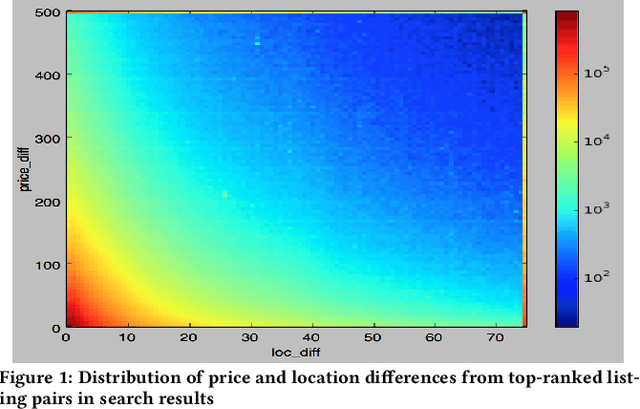
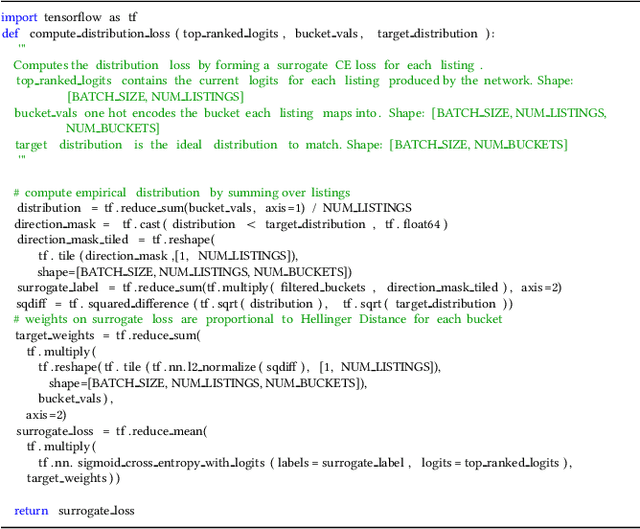
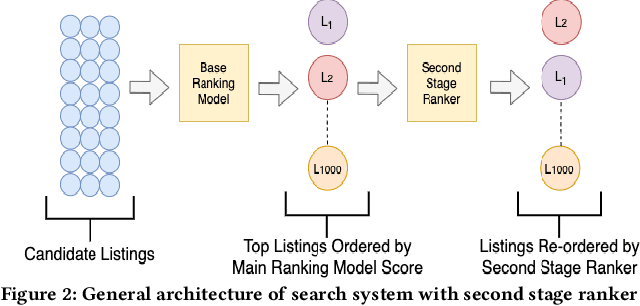
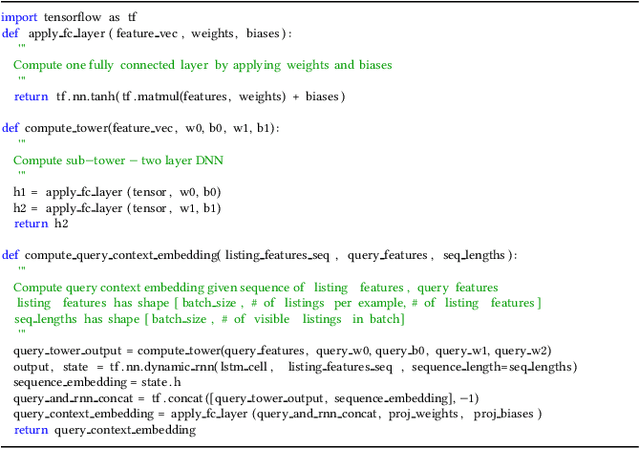
Abstract:One of the long-standing questions in search systems is the role of diversity in results. From a product perspective, showing diverse results provides the user with more choice and should lead to an improved experience. However, this intuition is at odds with common machine learning approaches to ranking which directly optimize the relevance of each individual item without a holistic view of the result set. In this paper, we describe our journey in tackling the problem of diversity for Airbnb search, starting from heuristic based approaches and concluding with a novel deep learning solution that produces an embedding of the entire query context by leveraging Recurrent Neural Networks (RNNs). We hope our lessons learned will prove useful to others and motivate further research in this area.
Improving Deep Learning For Airbnb Search
Feb 10, 2020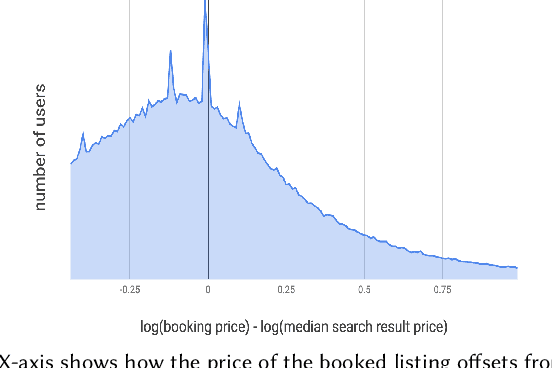
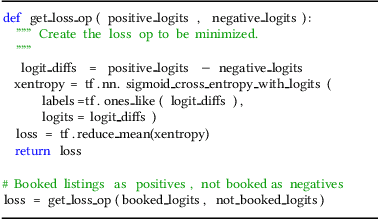
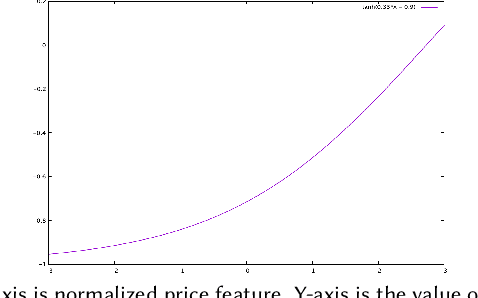

Abstract:The application of deep learning to search ranking was one of the most impactful product improvements at Airbnb. But what comes next after you launch a deep learning model? In this paper we describe the journey beyond, discussing what we refer to as the ABCs of improving search: A for architecture, B for bias and C for cold start. For architecture, we describe a new ranking neural network, focusing on the process that evolved our existing DNN beyond a fully connected two layer network. On handling positional bias in ranking, we describe a novel approach that led to one of the most significant improvements in tackling inventory that the DNN historically found challenging. To solve cold start, we describe our perspective on the problem and changes we made to improve the treatment of new listings on the platform. We hope ranking teams transitioning to deep learning will find this a practical case study of how to iterate on DNNs.
Applying Deep Learning To Airbnb Search
Oct 24, 2018
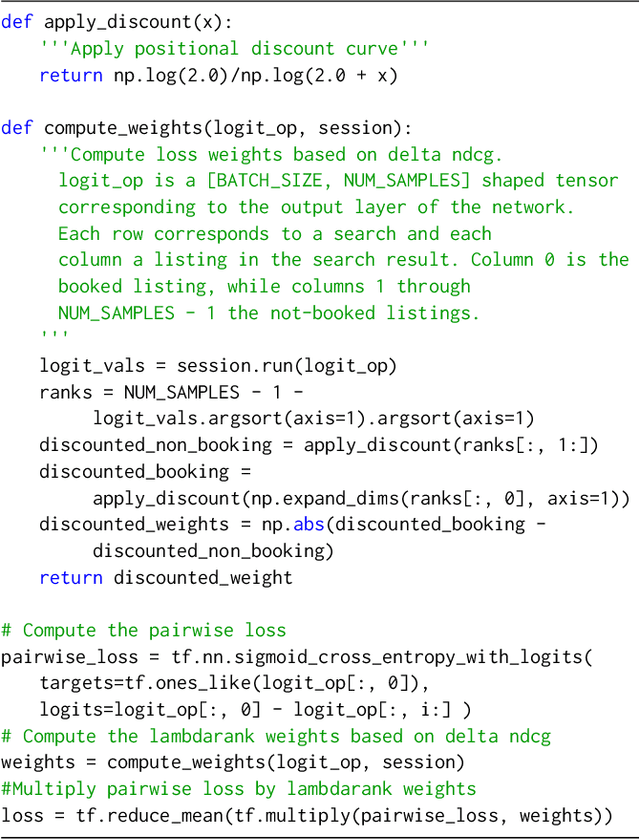
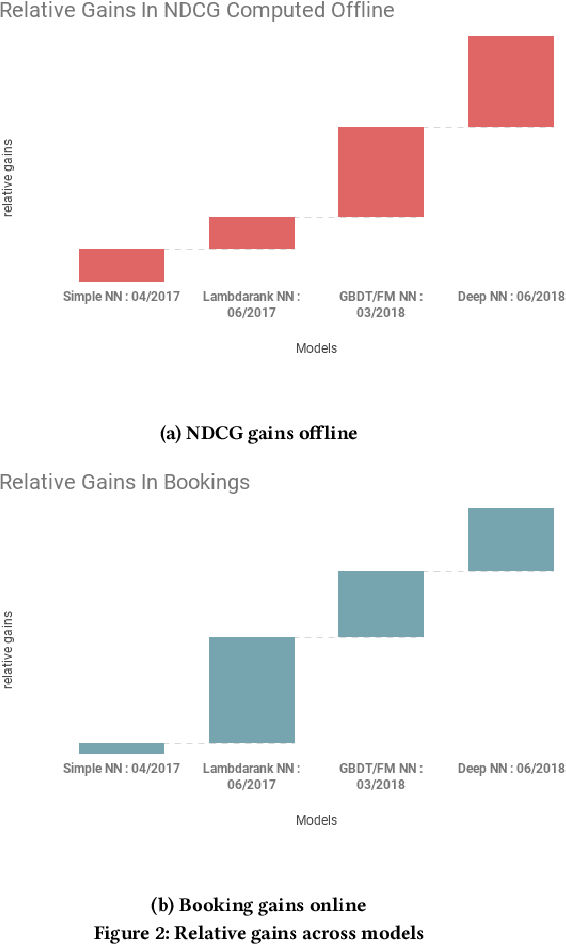
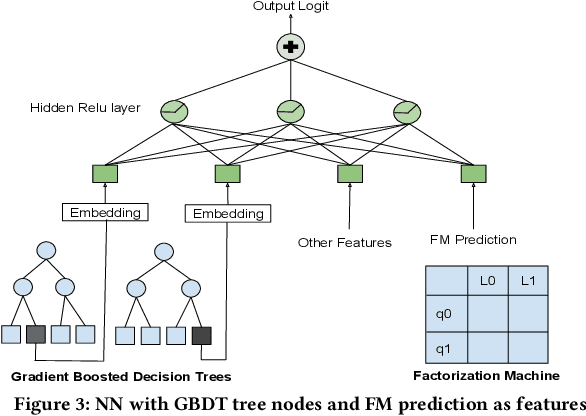
Abstract:The application to search ranking is one of the biggest machine learning success stories at Airbnb. Much of the initial gains were driven by a gradient boosted decision tree model. The gains, however, plateaued over time. This paper discusses the work done in applying neural networks in an attempt to break out of that plateau. We present our perspective not with the intention of pushing the frontier of new modeling techniques. Instead, ours is a story of the elements we found useful in applying neural networks to a real life product. Deep learning was steep learning for us. To other teams embarking on similar journeys, we hope an account of our struggles and triumphs will provide some useful pointers. Bon voyage!
 Add to Chrome
Add to Chrome Add to Firefox
Add to Firefox Add to Edge
Add to Edge